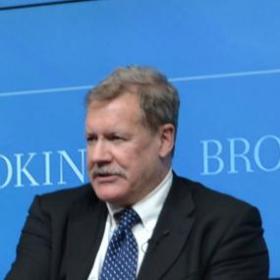
Cameron-Walesa v. Merkel-Sarkozy: High Stakes
Greg Austin wrote this piece for his weekly column in New Europe
At last! A new, and unlikely contender steps onto the field of play to take on the reigning champions of Europe. In an unlikely move last month, British Prime Minister David Cameron scored a dazzling goal against the Sarkozy-Merkel camp on the issue of Turkey’s membership of the European Union.
Cameron said on 27 July: “I’m here [in Ankara] to make the case for Turkey’s membership in the EU. And to fight for it.” He was joined by Lech Walesa on 19 August. “There is no Europe without Turkey”, the feisty giant-killer of Gdansk told a journalist.
Nobel Peace Prize winner from 2008, Martti Ahtisaari, leads an international commission that has twice reviewed the relationship between Turkey and the EU. The first report in 2004 confirmed the EU’s legal obligation to proceed with Turkish accession. The second noted the “vicious cycle” of negative public debate and stalling and reaffirmed the importance of seeing a “transformed Turkey” as a member of the European Union.
Citing the Association Agreement between the EEC and Turkey in 1963, a Customs Union agreement in 1996, and an EU decision in December 2004 that Turkey could join subject to completion of accession instruments, the Ahtisaari Commission went on to note that Turkey is already “broadly integrated into almost all pan-European Institutions”: the Council of Europe, including the European Court of Human Rights, and the Organization for Security and Cooperation in Europe.
According to a 2005 report by the Foreign Policy Centre (London), titled “Turks in Europe: Why Are We Afraid”, the position of Germany’s Angela Merkel reflects the failure of German policies of integration of its Turkish immigrants. More recently, domestic politics in France have led President Sarkozy to make disquieting statements about immigrant communities in his country. His statements have been accompanied by clear indications of state-sanctioned hostility to, or discrimination against certain classes of immigrants (Muslim women wearing burqas) and would-be immigrants (Roma).
I wonder about David Cameron’s motives in joining the debate so vociferously and, as he said, “very passionately”. But this is a fight that I hope he and his new partner, Walesa, can win.
Chancellor Merkel has advocated that Turkey should scale back its expectations and settle for a “privileged partnership”. She is not supported on this by her coalition partner, Foreign Minister Guido Westerwelle, who in visiting Ankara on 28 July, left open the door for continuing negotiations. The Independent Commission labeled advocacy of “privileged partnership” as a “populist excuse”. There are far higher political stakes in the question of Turkey’s relations with Germany and France, and how these two countries view Turkey’s inclusion in the EU. The prospect that the EU would abandon its legally binding commitment to Turkey because of domestic political positions inspired by xenophobic or anti-immigrant sentiment at home could be, in the words of a Turkish German politician, a “fatal political signal”.
As Turkey becomes more active on the global political stage, it is becoming a lightning rod for the worst nightmares of conservative American analysts, with one from the American Enterprise Institute recently charging at Congressional hearings that Turkey’s foreign policy in the Middle East “favors the most radical elements”. Thankfully, more considered views are in evidence from the German Marshall Fund’s Ian lesser at the same hearings: “if Turkey’s candidacy proves hollow, this could well interrupt or reverse Turkey’s longstanding convergence with the West, further complicating an already strained relationship with the United States.” But please note, the fight for Turkey in Europe is a fight for dignity and equality as much as it is a fight for realpolitik. If immigrant bashers win, that could become a fatal political signal for the internal security of the “immigration continent”.

